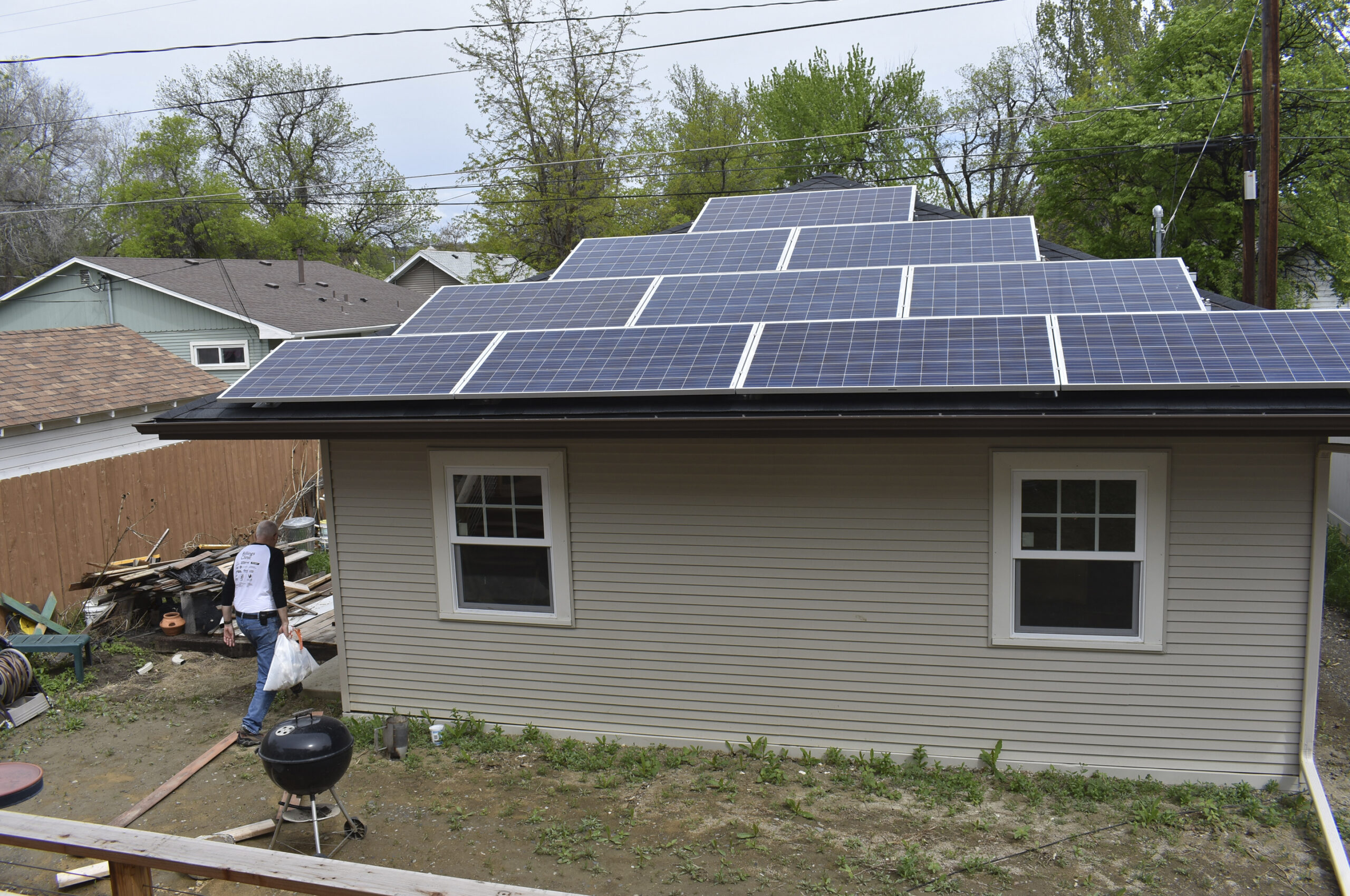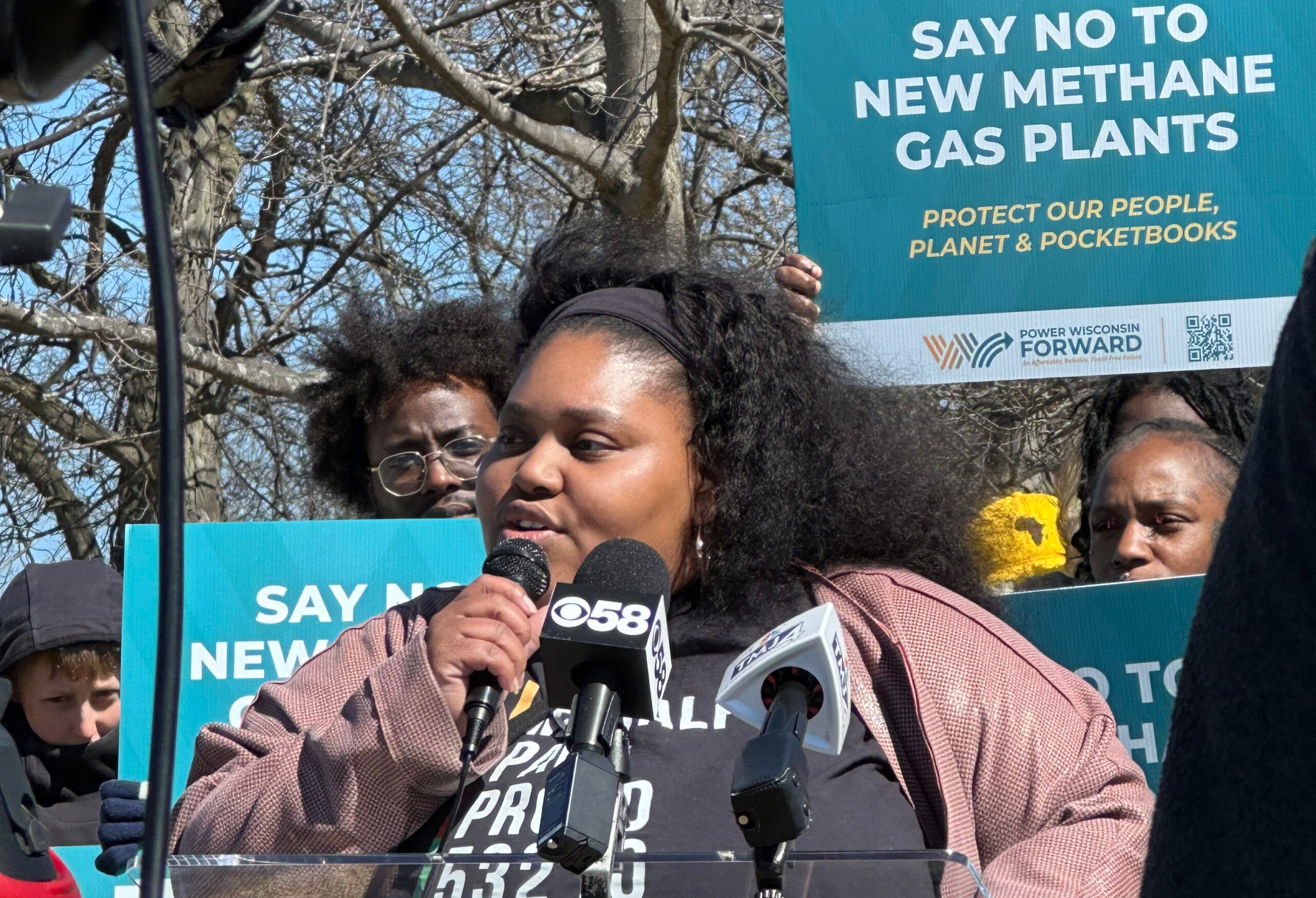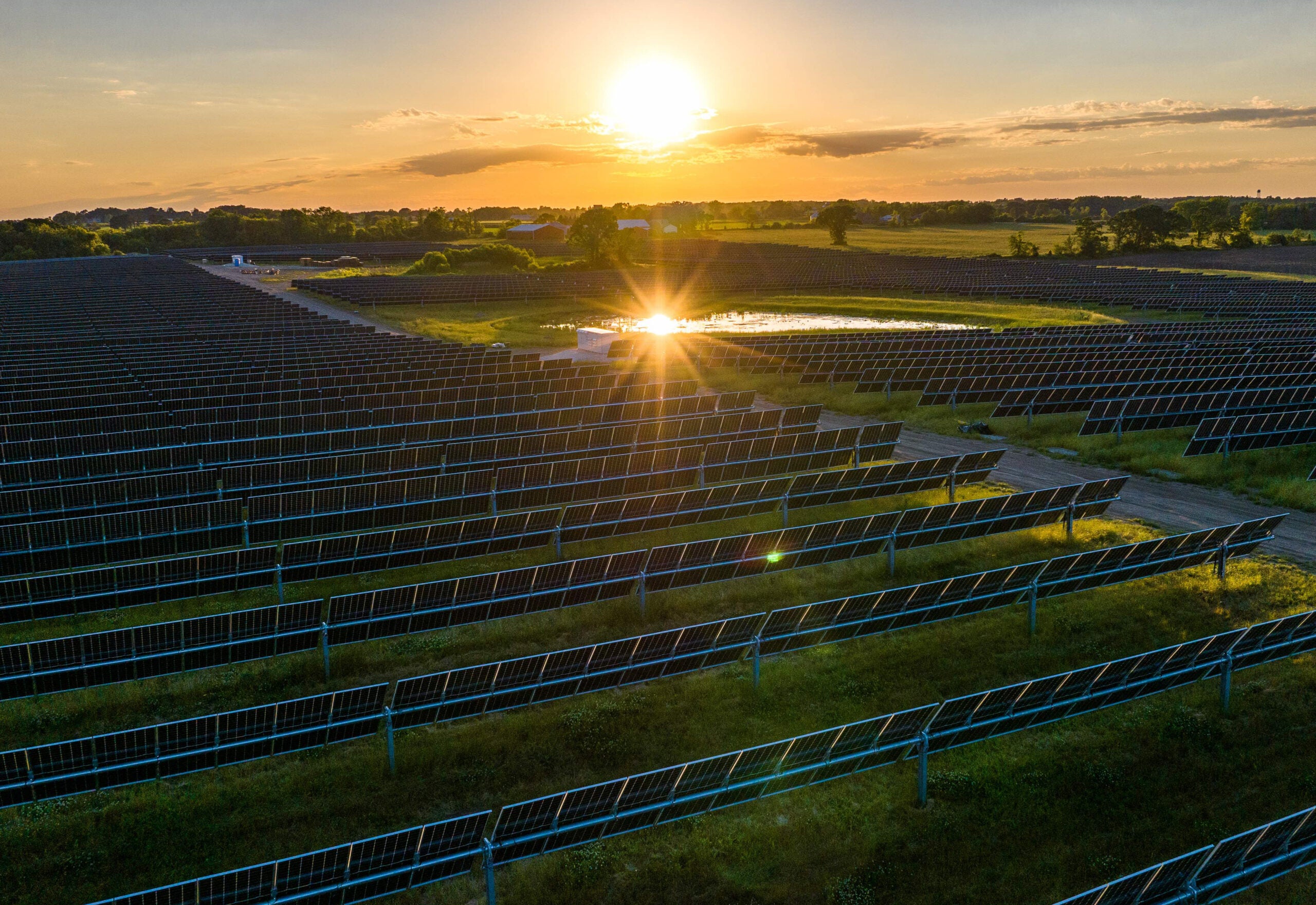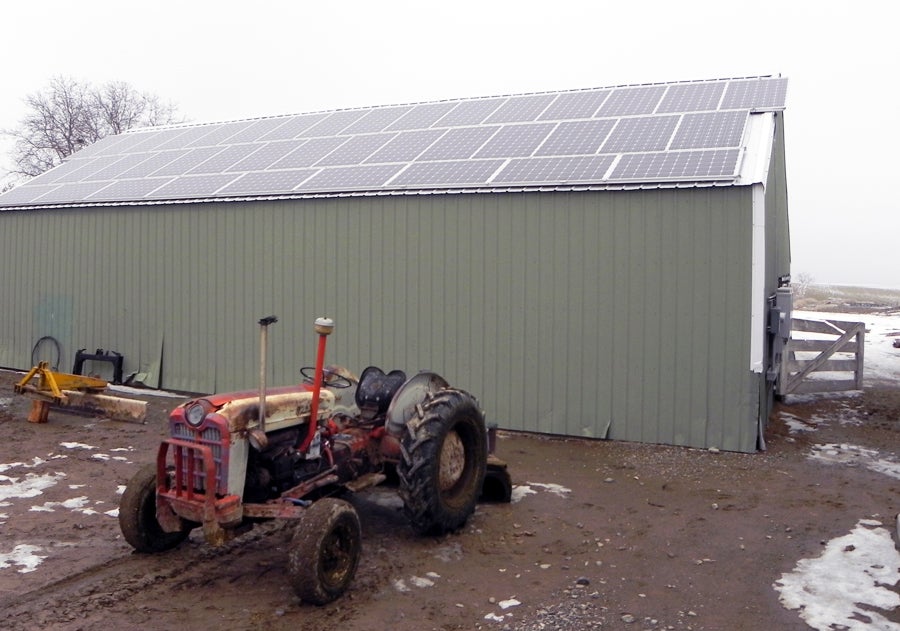Clean energy advocates say a recent court decision is a setback for efforts to grow residential solar energy use in Wisconsin.
Last week, a Dane County court overturned a 2022 decision by the Public Service Commission that would have allowed family in Stevens Point to use third-party financing to install solar on their home.
Under that agreement, the family would lease the system from North Wind Renewable Energy Cooperative. Similar lease agreements are common in other states, but utilities have opposed their use in Wisconsin, saying they are not allowed under existing state law.
Stay informed on the latest news
Sign up for WPR’s email newsletter.
The family in Stevens Point sold their home and did not move forward with the project, according to North Wind Founder Josh Stolzenburg.
Even so, the Wisconsin Utilities Association last year challenged the PSC’s decision in Dane County Circuit Court.
Last Friday, the court sided with the utility association, sending the issue back to the Public Service Commission. The court said the PSC incorrectly interpreted what constitutes a “public utility” in its decision because it focused on the singular project and not North Wind’s activities as a whole.
State law defines a “public utility” as any entity owns, operates, manages or controls equipment used for the “transmission, delivery or furnishing of heat, light, water or power either directly or indirectly, to or for the public.”
Utilities are largely opposed to third-party financing for solar installations, saying it violates state law by allowing installers to act as a utility without being regulated as one.
“We’re pleased with the decision of the court affirming our position that if you provide energy to the public, either directly or indirectly, you must be regulated as a public utility,” Bill Skewes, executive director for the Wisconsin Utilities Association, said in an email.
But renewable energy advocates framed the court’s decision as a major setback for Wisconsin homeowners seeking affordable clean energy.
In a statement, Will Kenworthy, regulatory director for the nonprofit Vote Solar, an intervenor in the Dane County court case, said the ruling limits customers’ rights to manage their energy use and favors utility profits.
“This is a violation of basic consumer rights and will deepen the existing inequalities within our energy system, where financial barriers can prevent individuals from accessing clean energy solutions,” he said.
A spokesperson for the Public Service Commission declined to comment, saying the agency does not comment on pending court cases.

At least 29 other states allowed third-party financing for solar installations as of 2021, according to the NC Clean Energy Technology Center at North Carolina State University.
Chelsea Chandler, climate, energy and air program director for Clean Wisconsin, said the legality of third-party financing for residential solar installations has been ambiguous for a long time.
She said the PSC’s decision in 2022 sought to bring some clarity to the rules, but that clarification has effectively been nullified by the recent court decision.
Chandler also said many low- to moderate-income families want to invest in rooftop solar, but the upfront cost is a major barrier. Allowing families to lease their system, she said, would help make solar more accessible and affordable.
“Solar has a great payback period over time, and it can save residents money over the lifetime of the panels,” she said. “But particularly for folks who are lower income, who don’t have a large savings, being able to front that money is a barrier (that makes it) impossible for some people.”
Chandler said low- and moderate-income households in Wisconsin could get help installing solar power through a $62.4 million awarded to the state by the Biden Administration on Earth Day. But she said that isn’t the sole solution.
“We still have very low overall penetration of rooftop solar in Wisconsin, and there’s huge, huge untapped potential,” Chandler said.
The legal ambiguity of third-party financing in Wisconsin also hamstrings developers, like North Wind, said Stolzenburg.
He said there are nonprofits and households that would utilize third-party financing, but the murkiness of the law has stopped them from pursuing it.
Brad Klein, a senior attorney for the Environmental Law & Policy Center, said his firm is looking closely at the Dane County court order and is considering an appeal. He said the firm could take the case to the Wisconsin Court of Appeals or potentially the state Supreme Court.
“There are other measures that are sort of beyond the scope of this particular case,” Klein said. “There could be further petitions to the commission based on different sets of facts or legislative activity on this topic. I think this circuit court opinion certainly is not the last word on this issue.”
Wisconsin Public Radio, © Copyright 2025, Board of Regents of the University of Wisconsin System and Wisconsin Educational Communications Board.




